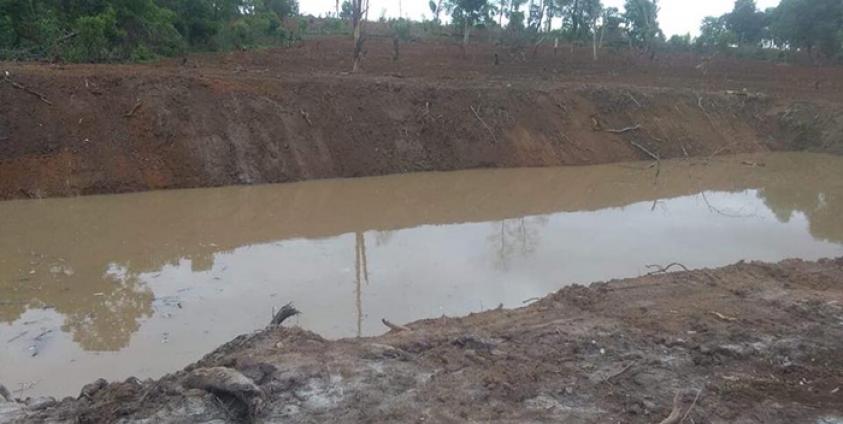Locals call on the Shan armed group to investigate the claim and take action against the company.
A company mining for coal in southern Shan State’s Mong Kurng Township (also known as Mongkai) against the locals’ will has said that it received permission from the Restoration Council of Shan State (RCSS) to do so.
The company—known by the name of U Aik Chon—has begun digging about 300 meters from the coal mining block once operated by the Hein Metta Company, which withdrew in 2018 following widespread opposition to their activities.
Locals and monks visited the site on June 14, noting that it was part of the Kheetang stream, which supplies water to local farmers.
“For sure the stream will be damaged. They have continued to dig despite us opposing it,” Murng Kurng abbot U Thaw Yay Ya told SHAN.
Those affiliated with the U Aik Chon company told the visitors that it was the RCSS which had given them the green light to mine in the area.
“They said they had permission from the RCSS. They didn’t say they had permission from the government,” U Thaw Yay Ya said, despite previous information that the government had given them permission to mine in the area until 2020. “We are going to discuss it with RCSS officials at the RCSS’s liaison office. If we have a chance, we will request to meet the RCSS chairman.”
SHAN contacted RCSS’s liaison office in Taunggyi, as well as the organization’s headquarters. Officials said that they did not know anything about a coal mining initiative in Mong Kurng.
“I don’t know details about it. As for the RCSS’s policies, we will stand with the people. If local people don’t agree to it, we won’t allow it,” RCSS secretary Col Sai Nguen told SHAN.
Lon Sai Yi, a Mong Kurng local, told SHAN that U Aik Chon had indeed referenced RCSS, and said he felt that the RCSS should “investigate this case as soon as possible and take action against the mining company.”
Monks and hundreds of locals held a meeting earlier in June where it was decided they would protest the coal mining if any company or organization digs in Mong Kurng, because of the impact on local water sources and agriculture.
Locals opposed previous companies that prepared to dig for coal on nearly 1,000 acres of pine forest in 2017, and protested the project.







